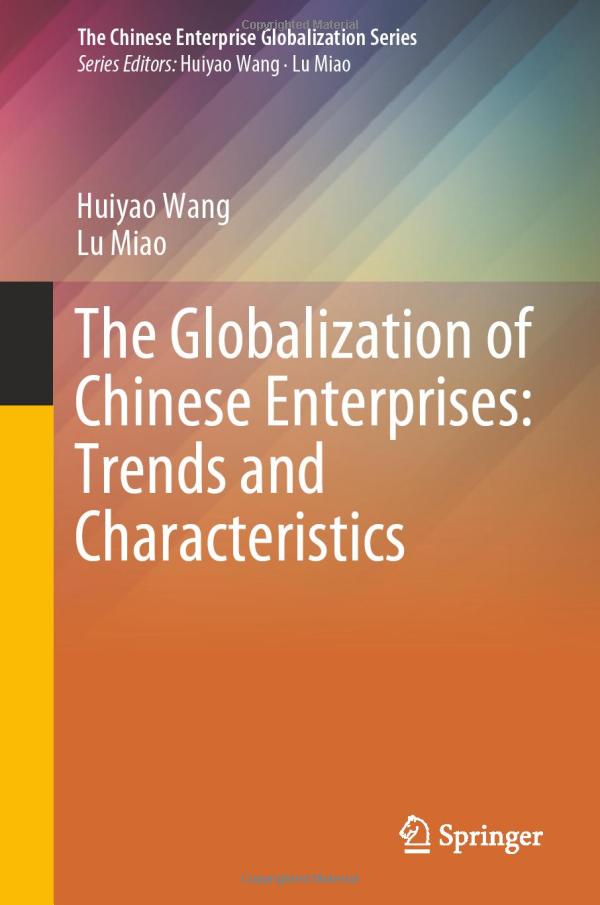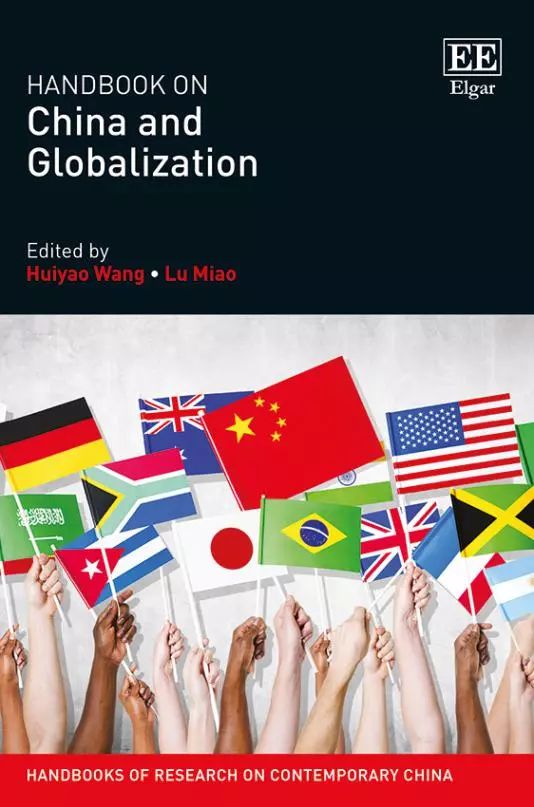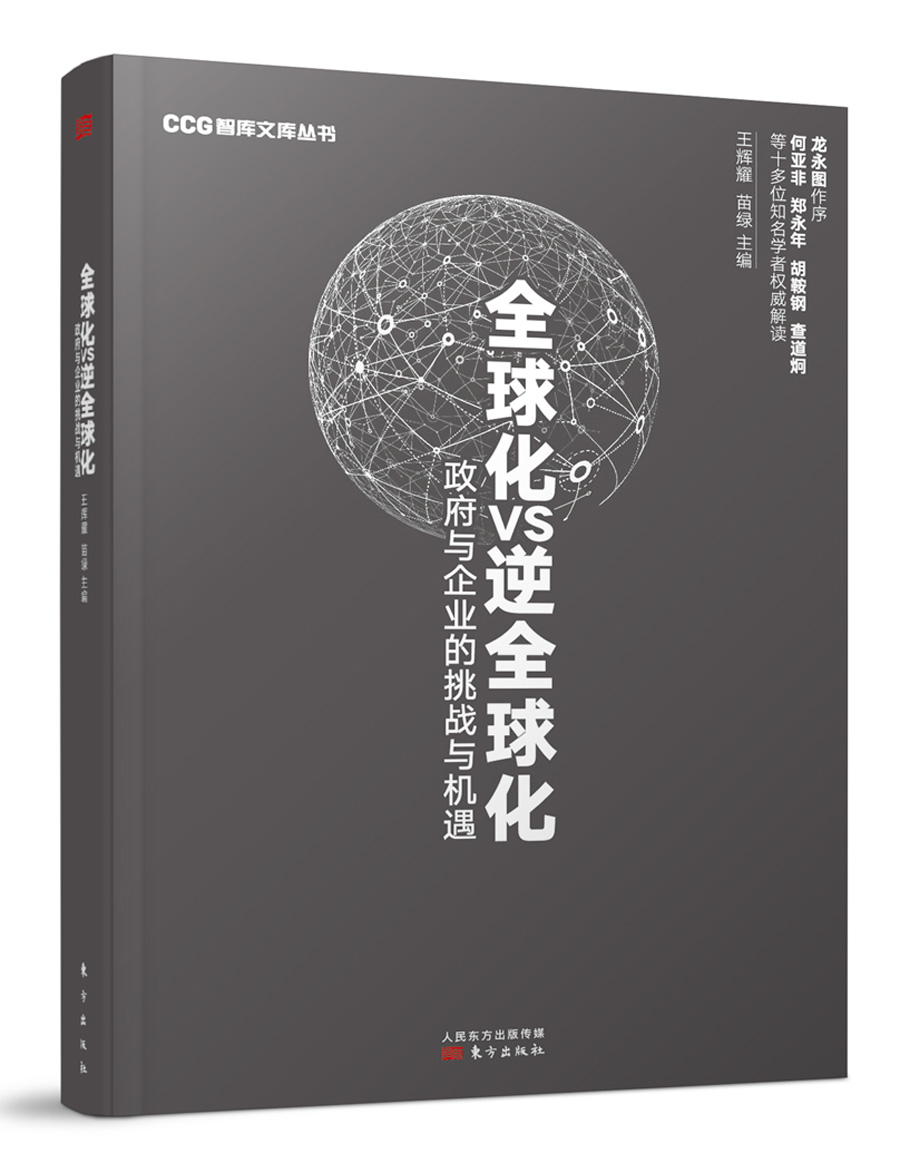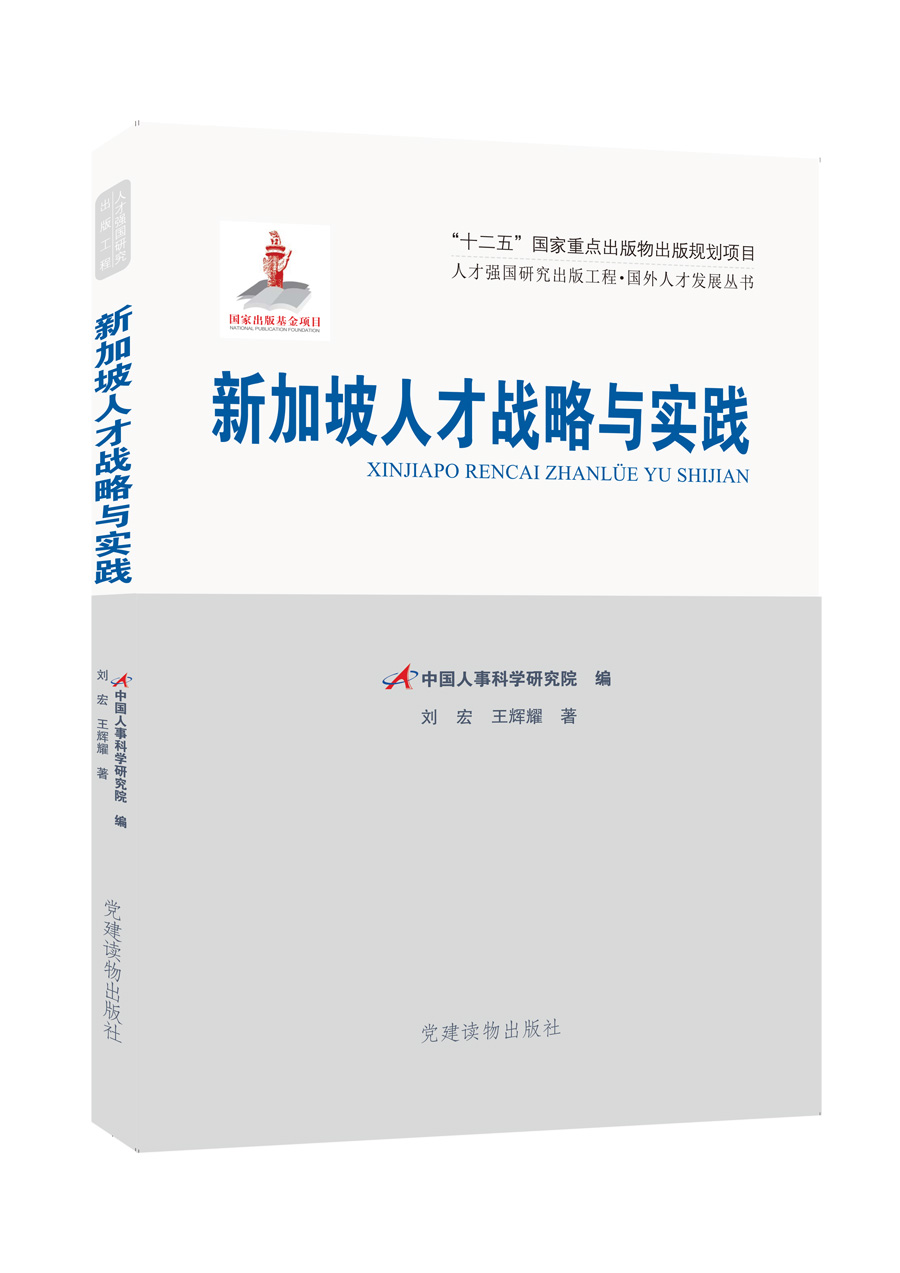The Globalization of Chinese Enterprises: Trends and Characteristics

出版机构:Springer
作者:Wang Huiyao, Miao Lu
发布时间:2020
点击封面查看大图
近日,由全球化智库(CCG)主任王辉耀博士和CCG秘书长苗绿博士主编的全英文著作 The Globalization of Chinese Enterprises: Trends and Characteristics(《中国企业全球化:趋势与特征》)在国际著名学术性出版社——Springer(斯普林格)出版。本书调查分析了近3000个数据样本,采用定量和定性研究相结合的方法,分析了中国企业在海外经营时所面临的挑战,对中国企业全球化的特征和模式提出了独特的见解,并通过分析为已经和计划“走出去”的企业提供有益参考。

中国企业全球化是21世纪经济全球化最显著的特征之一。尽管经历了2008年的金融危机,全球对外投资疲软,但在“走出去”倡议下,中国对外投资一路向好,同时在投资方式、目的地、产业等方面也在逐步实现多元化。在部分国家反全球化情绪日益高涨,中国企业全球化面对新的挑战之际,本书对中国企业全球化的现状与未来提出了独特的见解,主要研究了三方面内容,包括中国企业全球化的现状原因分析和相应的解决方案,以及对企业、政府机构和其他机构的相关建议。
本书第一章主要研究了当前世界对外投资的趋势与特点。书中指出,2017年全球经济和全球货物贸易均以2011年以来最快速度增长,增长速度分别达到3%和4.7%。然而,全球外国直接投资则在2016、2017年连续两年下降。例如,2017年,跨境并购和公布的绿地投资分别下降了22%和14%。此外,发达国家的投资水平急剧变化,而发展中国家的投资水平保持稳定和强劲。总的来说,国际投资政策正变得更加自由化并具支持性,但某些国家采取的保护主义措施仍令人担忧。
本书第二章主要分析了中国对外直接投资的现状与特点。书中指出,尽管贸易壁垒不断上加大,反全球化趋势上升,中国经济仍在持续增长和发展。据国家统计局统计,2017年,中国GDP总量首次突破80万亿元大关,达到82.7万亿元,同比增长6.9%,实现经济年度增速自2011年下行以来的首次回升。目前,尽管中国企业对外直接投资放缓,但投资领域和投资模式趋于稳定,投资多元化、领域拓宽,尤其在“一带一路”沿线投资中取得了丰硕成果。
本书第三章聚焦中国企业全球化面临的问题及其对策。书中指出,随着中国企业“走出去”的步伐不断加快,中国企业在全球化进程中遇到了各种各样的问题,包括管理风险的能力不足,例如法律和政治风险;参与制定国际标准的程度低;企业品牌国际化战略的障碍;以及企业人才国际化的有限性。为了帮助解决这些问题,本章分析了各个领域的现状和挑战,提出了原因分析,并据此提出了合理的解决方案。此外,本书还统计收录了2016至2017年间879家中国企业对外投资情况。
Foreword One
Foreword Two
Chapter 1 Current trends and features of outbound investment worldwide
1.1 Outline
1.2 The current situation and features of outbound investment worldwide
1.2.1 The largest drop in global FDI levels in recent years
1.2.2 FDI flows to developed economies fluctuated but flows to developing economies remained stable
1.2.3 Cross-border M&A and greenfield investment
1.2.4 International policy trends toward liberalization and investment facilitation
Chapter 2 Current Trends and Features of China’s OFDI
2.1 China’s OFDI decreases for the first time as policies rationalize the go-global movement
2.2 OFDI destinations diversify, with rapid growth in Europe and Africa
2.3 China’s OFDI covers many sectors, with particular increases in manufacturing, wholesale and retail, and finance
2.4 Overseas M&As by Chinese enterprises grow but fluctuate
2.5 Participation in the BRI by Chinese firms benefitted host countries
Chapter 3 Problems Faced by Globalizing Chinese Enterprises and Proposed Solutions
3.1 Legal Risks
3.1.1 Current situation: Enterprises “going global” face high legal risk and often rely on poor local legal services
3.1.2 Causal analysis: Lack of corporate legal awareness and insufficient international legal talent
3.1.3 Suggested Solutions
3.2 Political Risk
3.2.1 Current situation: Increasing frequency of geopolitical incidents and damage to overseas corporate interests
3.2.2 Causal analysis: Lack of preparatory intelligence gathering and an imperfect system of protective policies
3.2.3 Suggested solutions
3.3 Chinese investment in the US under the China-US trade issues
3.3.1 Current situation: Problems facing Chinese investment in the US under the China-US trade Issues
3.3.2 Causal analysis: Structural problems caused by rapid development of the global economy, skewing of China-US trade deficit under traditional statistical methods, and changes in domestic and international politics
3.3.3 Suggested Solutions
3.4 International Standard Setting
3.4.1 Current situation: Low-level of involvement in international standard setting
3.4.2 Causal analysis: Insufficient talent, technology and funding lead to weaknesses in the content and translation of standards
3.4.3 Suggested solutions
3.5 Internationalization of Chinese brands
3.5.1 Current situation: Chinese brand internationalization strategies face obstacles
3.5.2 Causal analysis: Lack of brand awareness, association and strategy
3.5.3 Suggested solutions
3.6 Talent Internationalization
3.6.1 Current situation: Chinese enterprises lack international talent
3.6.2 Causal analysis: Weak human resources management and cultivation
3.6.3 Suggested solutions
3.7 Enterprise Compliance
3.7.1 Current situation: Compliance is a critical component of Chinese enterprises’ internationalization
3.7.2 Causal analysis: Chinese enterprises are not familiar with overseas laws and take risks without having the necessary compliance mechanisms in place
3.7.3 Suggested solutions
Appendixes







